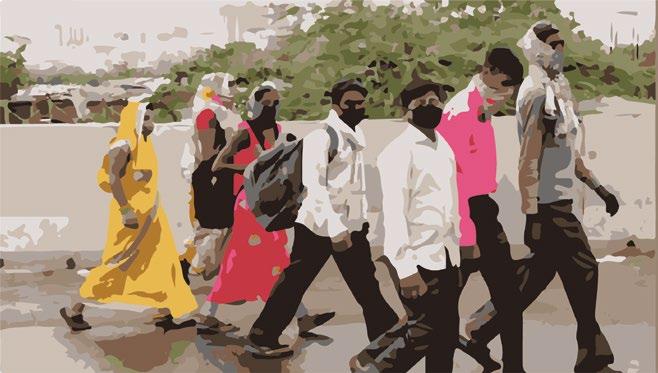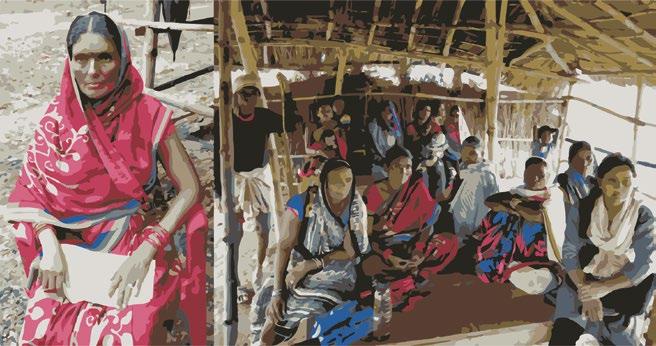National Security legislations: A clampdown on human rights There are some laws in the country that are used as a means for preventive detention i.e detaining someone to prevent them from committing an offence, in the interest of public order. The concept of preventive detention sounds perilous, especially when it gets codified into counter-terror or ‘national security’ legislation without institutional checks and balances that respect the Right to Life (Article 21 of the Indian Constitution). While Article 22 of the Indian Constitution does unfortunately make room for preventive detention, the past decades have seen states misuse this provision to enact counter-terror laws, thus seriously affecting fundamental freedoms. India has laws like the National Security Act, 1980 (NSA); the Public Safety Act, 1978 (PSA); the Unlawful Activities (Pre-vention) Act, 1967 (UAPA) and the Prevention of Terrorism Act, 2002 (POTA), which go HUMAN RIGHTS IN INDIA - Status Report 2021 by IAMC
beyond the evil of preventive detention and target minorities and the marginalized under the garb of “protecting interest of national security”. These laws are widely criticized as being ‘draconian’, highly oppressive and seemingly imperialist in nature. They are violative of fundamental as well as basic human rights, the most important one being, the Right to Life (Article 21) that protects an individual from being deprived of his life or personal liberty, except according to procedure established by law. But when this “procedure established by law” is misused to a point where it is clearly arbitrary and done with a motive of fulfilling one’s political agenda, then it certainly needs to be screened for being in violation of the Constitution. These laws enable the government to bypass human rights to serve partisan interests.
25




















